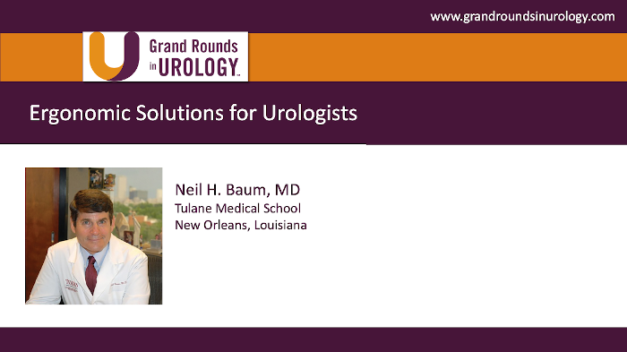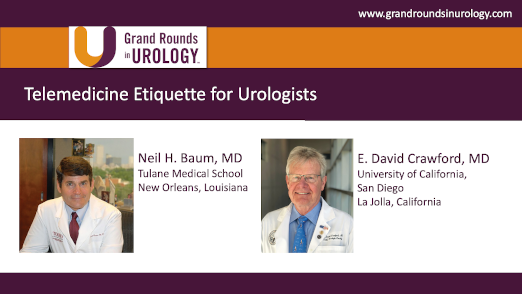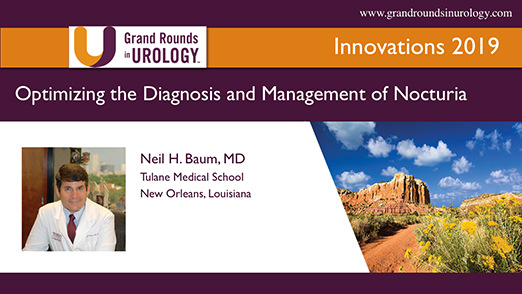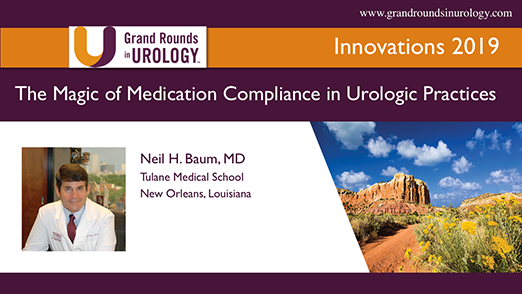Ergonomic Solutions for Urologists
Neil H. Baum, MD, Professor of Clinical Urology at Tulane Medical School in New Orleans, Louisiana, discusses how ergonomics affects nearly every urologist practicing today. Back and neck pain has an incidence rate of more than 50% for urologists which is the result of the introduction of minimally invasive and robotic surgeries. Despite this, there have been no significant changes to the operating rooms. Dr. Baum provides some solutions for how urologists can avoid ergonomic injuries. He details eight different, easy-to-implement solutions for this common problem, everything from adjusting the patient’s position, to using gel insoles, to playing music.
Read More




